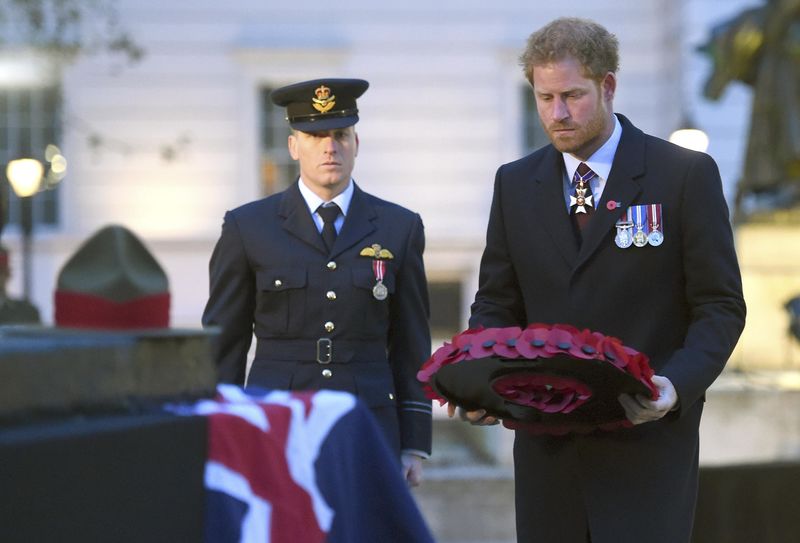LONDON (Reuters) - With dawn services and military parades, tens of thousands of people gathered in different countries on Monday to commemorate the ANZAC landings on the shores of Gallipoli during World War One.
ANZAC Day, on April 25, marks the first major battle involving troops from Australia and New Zealand in Gallipoli, Turkey in 1915.
While the campaign against the Ottoman Turks was ultimately unsuccessful, the day has since become a major annual holiday in Australia and New Zealand and one of remembrance for both countries' troops who have served and died in war.
Marking 101 years since the arrival of the Australian and New Zealand Army Corps on a narrow Gallipoli beach, soldiers from both countries marched to the beat of drums at a dawn service at ANZAC Cove on the Gallipoli peninsula.
Australian Minister for Veterans Affairs Dan Tehan and New Zealand Defence Minister Gerry Brownlee paid their respects by laying wreaths.
Thousands of people attended dawn services in Wellington and Auckland while in Sydney Australian military personnel past and present marched by flag-waving crowds.
In London, Britain's Prince Harry laid a wreath on behalf of Queen Elizabeth at the Cenotaph war memorial after attending a commemorative dawn service.
In Thailand, where ANZAC Day is observed to also remember those who served and died during the Japanese occupation in the early 1940s, Australian and New Zealand nationals gathered at a memorial service in the western Kanchanaburi Province.
Earlier in the day, former Australian prisoners of war had returned to the Hellfire Pass memorial for a dawn service to remember those forced to worked in harsh conditions to build the Thai-Burma railway track during World War Two.
The Hellfire Pass holds part of the infamous railway track.
In France, a dawn service was held at Viller-Bretonneux to mark those who lost their lives on the Western Front during World War One.

The Gallipoli battle was one of the bloodiest of the war, claiming more than 130,000 lives, 87,000 of them from the Ottoman side before the Turks repelled the poorly planned Allied campaign.